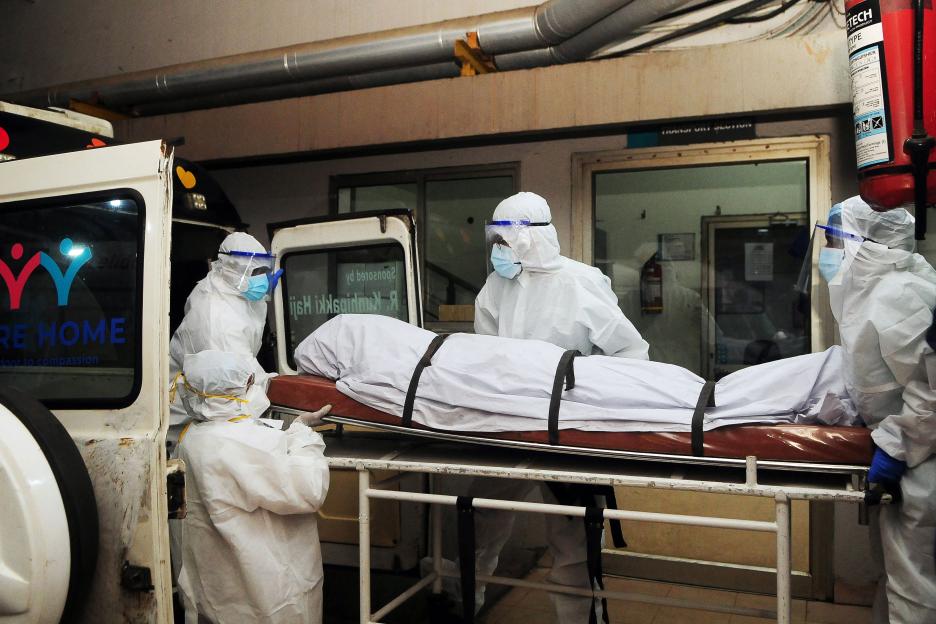SCREENING men for prostate cancer could slash deaths by 13 per cent, saving thousands of lives a year, a study suggests.
Results of the long-term European trial – one of the largest in history – came as experts assess whether the UK should introduce a .
 Experts are currently considering whether a prostate cancer screening programme should be introduced in the UKCredit: Getty
Experts are currently considering whether a prostate cancer screening programme should be introduced in the UKCredit: Getty
The UK National Screening Committee’s decision is expected by the end of November this year.
The new study, published in the New England Journal of Medicine , suggests that a “targeted” approach to screening could be adopted to reduce deaths from the disease and also prevent problems arising from “overdiagnosis”.
Researchers examined the risks and benefits of screening across eight European countries over a 23-year period.
It included data on 162,000 men – 72,000 of whom were invited for screening.
They found that one death from prostate cancer was prevented for every 456 men screened.
And for every 12 men diagnosed with prostate cancer, one death was averted.
Commentators said the findings are “comparable to that seen with breast or bowel cancer screening”.
As well as a reduction in deaths from prostate cancer, the authors of the study said screening has a “more favourable harm-to-benefit profile than previously estimated”.
But they said that harms linked to screening “remain a critical concern”.
Critics say a formal screening programme for prostate cancer could lead unnecessary testing and biopsies, overdiagnosis and subsequent overtreatment – which can have side effects, such as incontinence and erectile dysfunction.
The study authors wrote: “These findings highlight the need for a more targeted strategy for prostate cancer screening that focuses on identifying population subgroups that are most likely to benefit from early detection while reducing unnecessary interventions for those with the highest risk of overdiagnosis.”
The prostate-specific antigen (PSA) test is a blood test which is currently used to check for prostate conditions such as prostate cancer or an enlarged prostate.
Routine PSA testing is not currently offered on the NHS but men may be offered a PSA test if a GP suspects they have prostate cancer.
Men over the age of 50 can ask their GP for a PSA test, even if they do not have symptoms.
The well-known harms of screening, of overdiagnosis and overtreatment, can be substantially mitigated with technologies such as MRI pre-biopsy and for monitoring
Nick James
Officials have faced increased calls for a screening programme to be introduced.
They will be weighing up the concerns outlined in the review.
A recent study published in The BMJ also found that prostate cancer blood tests can lead to men being over-tested, while those who need help may be missed.
But a report launched by Prostate Cancer Research this month that offers men at higher risk of prostate cancer an MRI along with a PSA test, to mitigate the risks of overdiagnosis or unnecessary checks.
Pros and cons of screening
Commenting on the new study, Nick James, professor of prostate and bladder cancer research at The Institute of Cancer Research, London, said: “The latest analysis from the ERSPC (European Randomised study of Screening for Prostate Cancer) further strengthens the evidence base in favour of PSA-based prostate cancer screening.
“The overall reduction, with longer follow-up, in risk of death is comparable to that seen with breast or bowel cancer screening.”
He added: “The well-known harms of screening, of overdiagnosis and overtreatment, can be substantially mitigated with technologies such as MRI pre-biopsy and for monitoring.
“The side effects of treatment, such as incontinence, are substantially less with modern surgery and radiotherapy than the rates documented in the trial, further strengthening the case for screening.”
Rhian Gabe, professor of biostatistics at Queen Mary University London, added: “These results confirm prevention of prostate cancer death with repeat PSA testing, however, concerns remain about the unnecessary biopsies and harms of overdiagnosis and overtreatment.
“Newer technologies provide great hope that these negative aspects can be addressed.
“Evidence from randomised controlled trials of prostate cancer screening strategies incorporating these new technologies is needed to inform UK screening policies.”
One in eight men will get prostate cancer
The risk of developing prostate cancer depends on many factors, here are some of the facts about the disease and how many men it affects.
- One in eight men will get prostate cancer in their lifetime
- It is the fourth most common cancer worldwide, and the most common in men
- There are 63,000 new cases every year in the UK, and 1.5million globally
- Around 12,000 people lose their lives to prostate cancer annually in the UK and almost 400,000 around the world
- Prostate cancer accounts for 28 per cent of all new cancer cases in men in the UK, and 14 per cent of all new cancer cases in men and women combined
- Prostate cancer survival has tripled in the last 50 years in the UK
- More than three-quarters (78 per cent) of patients survive for 10 or more years
- About 510,000 men are living with and after prostate cancer in the UK
- It is most common in men aged 75 to 79
- Since the early 1990s, cases have increased by 53 per cent in the UK
- Mortality rates are up 16 per cent since the early 1970s in the UK
- Incidence rates are projected to rise by 15 per cent in the UK between 2023 to 2025 and 2038 to 2040
- Mortality rates are expected to fall five per cent in the UK over the same years
BRCA genes and risk of prostate cancer
BRCA1 and BRCA2 are two genes that everyone has. They keep healthy cells growing normally and prevent the growth of cancer cells.
In a small number of people, these genes change and don’t work properly – this is called a gene variant. Your body can create these gene variants over time, or they can be inherited.
Men with a BRCA2 gene variant have a higher risk of developing prostate cancer during their lifetime.
If you have a BRCA1 variant, your lifetime risk of developing prostate cancer may only increase slightly.
Some research suggests that having a BRCA1 or BRCA2 gene variant may also increase your risk of being diagnosed with prostate cancer at a younger age or having aggressive prostate cancer.
In the general population, around 1 in 300 to 400 people have a BRCA gene variant.
But people from an Ashkenazi Jewish background have a higher risk – around 1 in 40 people may carry a BRCA gene variant.
NHS England is offering free BRCA gene testing for anyone living in England who is aged 18 or over and has one or more Jewish grandparent. For more info, visit jewishbrca.org or nhsjewishbrcaprogramme.org.uk .
Source: Prostate Cancer UK , World Cancer Research Fund International and Cancer Research UK
Dr Matthew Hobbs, director of research at Prostate Cancer UK, said: “The ERSPC trial was one of the largest prostate cancer screening studies ever conducted, and 23 years on it’s now shown that the balance between the benefits and harms of screening with PSA testing is better than previously thought.
“Although a large number of men were overtreated – a major reason we don’t currently have screening – that number has also reduced in this latest analysis.
“This is exactly the kind of high-quality evidence that the National Screening Committee needs to consider when making its decision on whether to screen men later this year, especially for men at higher risk like black men and men with a family history.”
Dr Ian Walker, executive director of policy at Cancer Research UK, said: “While this long-running study suggests that screening using the PSA test could help reduce deaths from prostate cancer, it also concludes that screening still caused harm.
“Men in the screening group were more than twice as likely to be diagnosed with low-risk disease compared to those not screened, often leading to unnecessary and sometimes invasive treatment.
“The authors highlight that screening all men carries a significant risk of unnecessary testing, overdiagnosis and overtreatment, due to issues with the PSA test.
“The UK National Screening Committee will be taking a look at this trial as part of its independent expert review into prostate cancer screening, and it’s vital that we await its recommendations and alongside this, continue research into better ways to detect and diagnose the disease, in order to save more lives.”
Affordable treatments
The news comes as the National Institute for Health and Care Excellence (Nice) approved a new treatment option for men with prostate cancer which has spread to other parts of the body.
NICE initially rejected abiraterone, saying that it did not represent value for money for the NHS.
But now it said that abiraterone and its generic variants can be used in combination with other treatments for newly diagnosed men with “high-risk hormone sensitive” metastatic prostate cancer.
Nice said that it was able to reverse its 2021 decision because of lower cost generic versions of the drug.
It said that around 4,000 men will now be able to benefit from the additional treatment option.
Prostate Cancer UK has welcomed NICE’s approval of abiraterone for men with metastatic prostate cancer.
But it warned that this decision won’t save or extend lives as these men already had access to equally effective treatments.
Instead, evidence shows abiraterone would be beneficial if prescribed earlier to men with high-risk but non-metastatic disease, when it can halve men’s risk of death.
The Sun has previously spoken to , simply to stay alive.
Amy Rylance, Assistant Director of Health Improvement at Prostate Cancer UK, said: “While this decision is a positive step for men with advanced cancer who will now have a wider choice of treatments, it also highlights a much bigger problem.
“We have known for years that prescribing abiraterone at an earlier stage would half the number of men who go on to die from the disease.
“The NHS has so far failed to act to approve this safe, cheap and effective treatment – and for every week this goes on another 13 men will die as a result.
“With this approval, the NHS has shown it can cut through the red tape and make effective, affordable treatments available when it chooses to.
“It must now do the same to help these men, who simply cannot afford to wait any longer.”
What are the symptoms of prostate cancer?
Symptoms of prostate cancer can include:
- Needing to pee more frequently, often during the night
- Needing to rush to the toilet
- Difficulty in starting to pee (hesitancy)
- Straining or taking a long time while peeing
- Weak flow
- Feeling that your bladder has not emptied fully
- Blood in urine or blood in semen
Source: NHS






